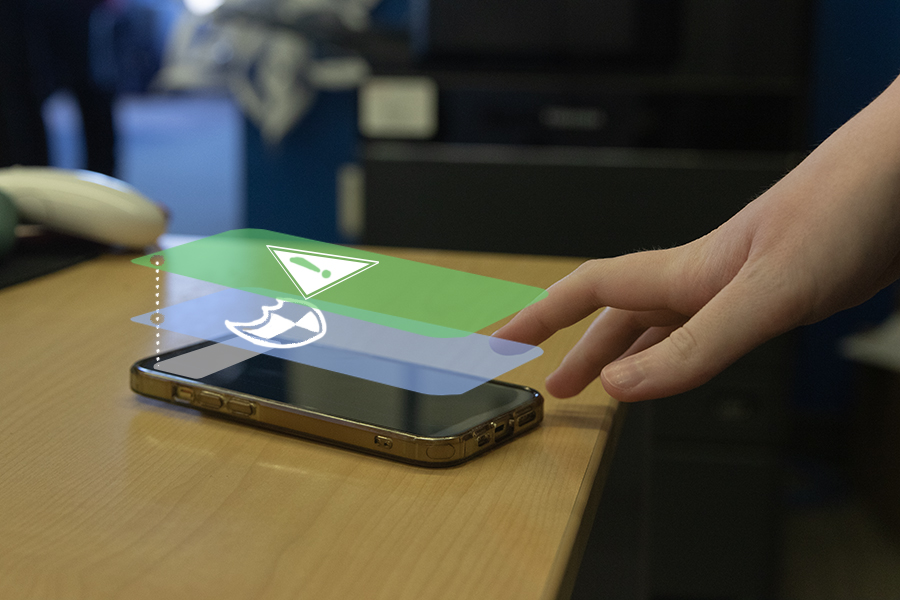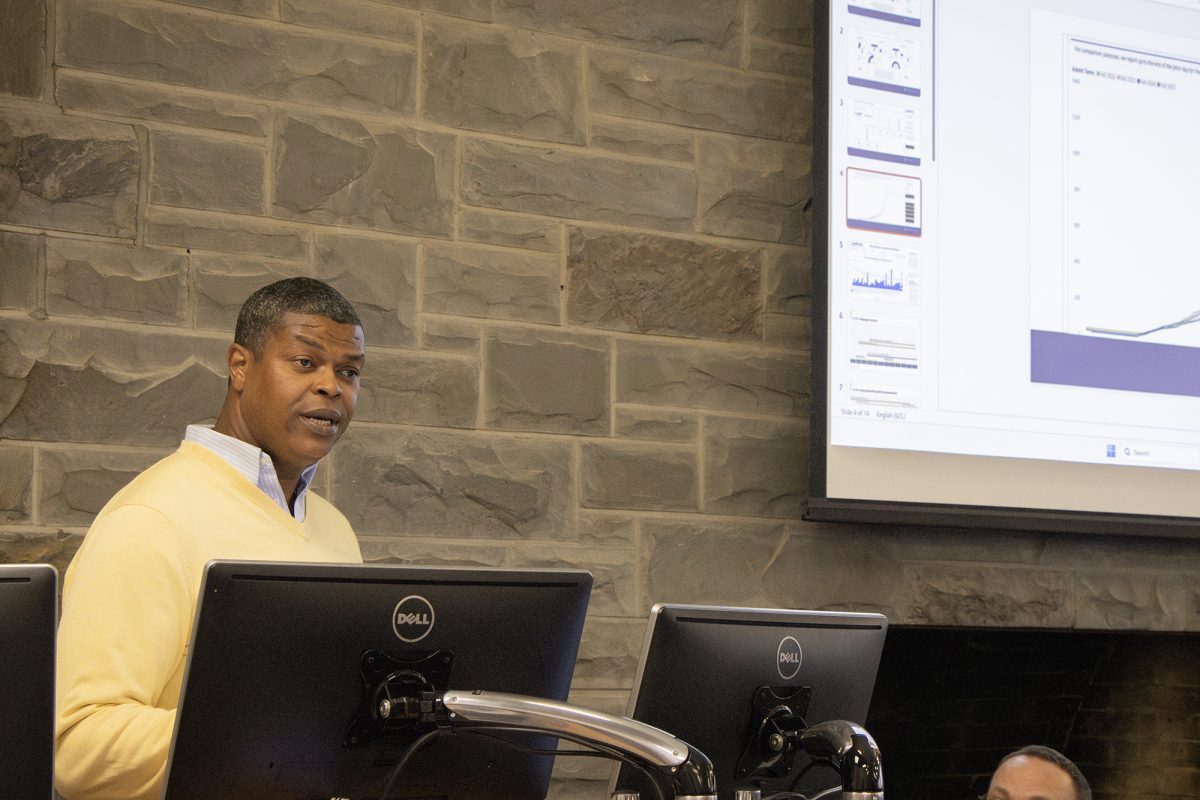The symphony of phone calls and text alerts that spread across Ithaca College’s campus before an emergency alarm system test will now have a new digital source. RAVE, the college’s software program for emergency alerts, will team up with ALERTUS to form a more comprehensive emergency notification system.
Samm Swarts, assistant director of emergency preparedness and response in the Office of Public Safety and Emergency Management, shared the new collaboration in a Feb. 8 Intercom announcement to the college community.
Swarts said ALERTUS will become part of the emergency notification system at the college, which also includes RAVE, an emergency alert software system, and the RAVE Guardian app, a personal safety app operated by RAVE. He said that through RAVE, the college sends emergency alerts through text, voice calls, emails and push notifications.
“[ALERTUS] is still integrated with the RAVE Guardian, so all these systems are basically going to talk to one another,” Swarts said. “It’ll all be integrated into one system. I think of ALERTUS as becoming our new mothership, if you will, to be able to control all these other [features] that we have, which is really awesome.”
With the addition of ALERTUS, the college will be able to send out emergency alerts to any networked computer, which includes any college-owned laptops or desktops in classrooms and throughout campus.
“The alert would actually take over [a professor’s] presentation screen, and everybody inside of that space would all be alerted at one specific time,” Swarts said. “Instead of having to kind of rely on [each personal device] individually, it allows us to do some mass alerting at the same time.”
Power outages, remote status changes, active threats and immediate weather threats like tornadoes would all be considered emergencies that would require an alert through RAVE and ALERTUS. Swarts said hate crimes could fall under the emergency alert category if the hate crime posed an immediate threat to the campus community. Otherwise, notifications of hate crimes fall under public safety alerts, like the announcement of a swastika found in Baker Walkway on Jan. 19.
Swarts said the vetting process for ALERTUS took two to three years, and the process for vetting the company involved making sure it would work with the college’s firewalls and network infrastructure. He said the college worked with both RAVE and ALERTUS when figuring out how to integrate them, and he did not disclose the cost of either software.
“It’s a combination of everyone coming to the table to talk together about how these products work,” Swarts said. “ALERTUS works with a lot of different vendors, and they’ve worked with RAVE previously, so that was a very easy integration for us.”
David Weil, vice president and chief information and analytics officer in the Office of Information Technology and Analytics, said RAVE and ALERTUS are designed to work together to form a more comprehensive emergency notification system.
Weil said that if there was a problem with the software, the college’s Office of Information Technology and Analytics would help identify the issue and then work in collaboration with tech partners — like RAVE and ALERTUS — to troubleshoot and fix the problem.
“The RAVE system is fairly self-contained in terms of pushing messages out to people’s cell phones, and the sirens on the buildings and other email alerts,” Weil said. “Then the ALERTUS system extends the reach to the desktops and other things. So even if the interface between those failed, we would still have our self-contained [emergency notification] system, which is really important.”
Swarts said RAVE already sends emergency alerts to the college’s campuses in London and Los Angeles and to the physician assistant campus on the Commons. ALERTUS will allow any networked computers on those campuses to receive the same notifications as networked computers on the South Hill campus.
Swarts said the rollout of ALERTUS’s features is a phased process. He said the college is still working on connecting personal computers to the emergency alert network that college-owned devices are connected to.
“ALERTUS will allow us to potentially bring in some different products to the campus community,” Swarts said. “We’re currently exploring some of those things and I don’t want to touch on them quite yet because we’re in the vetting process with it. [There will be] more to come most likely in the next few months.”
Family members and campus visitors can opt-in to get emergency alerts through the college’s website. Elyse Nepa, assistant director of the Clery Act and prevention education in the Office of Public Safety and Emergency Management, said the college encourages students at Cornell University to opt into RAVE notifications for South Hill. She said local elementary schools and community groups also have access to emergency notifications relevant to campus in addition to the outdoor alarms.
“We currently have two outdoor warning systems and we are, in the not-so-far future, updating that as well,” Nepa said. “That’s what I love about actually working in this department and in this community is the innovative approach to safety and integrating it into our daily lives through prevention education programs or tools like ALERTUS and RAVE Guardian.”
Swarts said the college is always looking to improve the accessibility of the emergency notification system. He said any accessibility features already saved on people’s devices — larger fonts or text-to-speech, for example — would apply to the alerts coming through RAVE and ALERTUS.
“I’m always willing to hear feedback from the campus community if there’s anything that we can do to make it better,” Swarts said.
Nepa said RAVE’s integration with ALERTUS is one of the ways the Office of Public Safety and Emergency Management works with the college to improve the safety of everyone on the college’s campuses and its visitors.
“I’m really excited to see ALERTUS get integrated,” Nepa said. “We’ve been talking about it as the next step for a couple of years, and to see a project be ready to take that next step and say, ‘Alright, today’s the day that we are prepared to integrate this’ — it’s really cool.”















